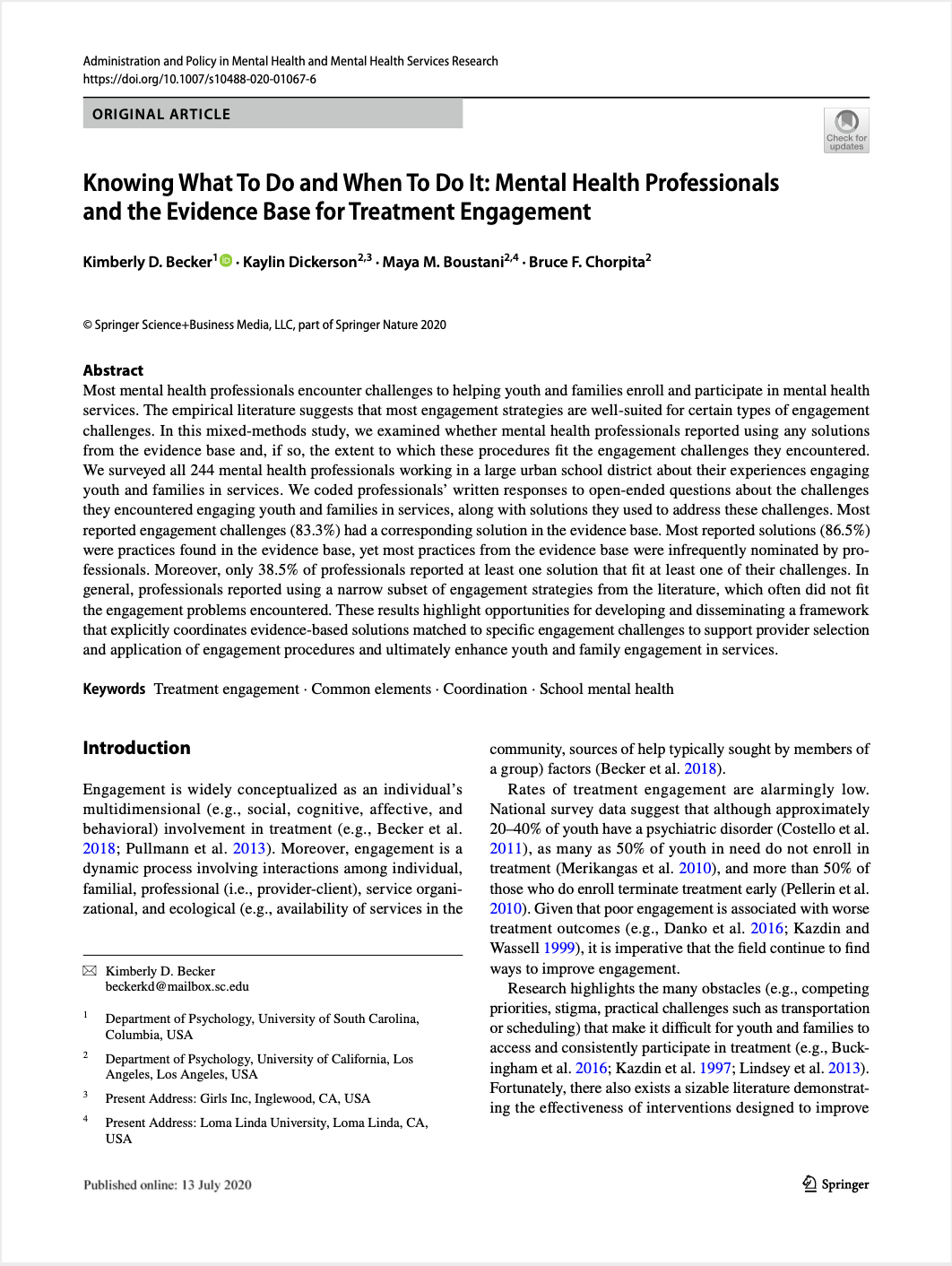Knowing what to do and when to do it: Mental health professionals and the evidence base for treatment engagement

Most mental health professionals encounter challenges to helping youth and families enroll and participate in mental health services. The empirical literature suggests that most engagement strategies are well-suited for certain types of engagement challenges. In this mixed-methods study, we examined whether mental health professionals reported using any solutions from the evidence base and, if so, the extent to which these procedures fit the engagement challenges they encountered. We surveyed all 244 mental health professionals working in a large urban school district about their experiences engaging youth and families in services. We coded professionals’ written responses to open-ended questions about the challenges they encountered engaging youth and families in services, along with solutions they used to address these challenges. Most reported engagement challenges (83.3%) had a corresponding solution in the evidence base. Most reported solutions (86.5%) were practices found in the evidence base, yet most practices from the evidence base were infrequently nominated by pro- fessionals. Moreover, only 38.5% of professionals reported at least one solution that fit at least one of their challenges. In general, professionals reported using a narrow subset of engagement strategies from the literature, which often did not fit the engagement problems encountered. These results highlight opportunities for developing and disseminating a framework that explicitly coordinates evidence-based solutions matched to specific engagement challenges to support provider selection and application of engagement procedures and ultimately enhance youth and family engagement in services.
Full text available here: Becker et al (2020)



